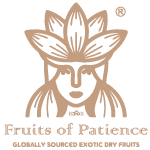When it comes to choosing the perfect gift for a loved one, it’s not always easy to strike the right balance between health and taste. However, there is one gift option that manages to seamlessly combine both aspects – dry fruits. These nutrition-packed, delicious treats have been a popular choice for gift-giving across cultures for various reasons. In this article, we will explore why dry fruits make the perfect gift by delving into the health benefits they offer, their culinary versatility, and their cultural significance.
The Health Benefits of Dry Fruits:
Nutrient-Rich Delights: Dry fruits are treasure troves of essential nutrients. They are replete with vitamins, minerals, and dietary fiber, making them an excellent source of nutrition. Whether it’s the vitamin E in almonds, the potassium in apricots, or the iron in raisins, each type of dry fruit has its unique nutritional profile.
Antioxidant Powerhouses: The antioxidants found in many dry fruits, such as prunes, apricots, and raisins, can help combat oxidative stress in the body. These antioxidants are crucial for maintaining overall health and reducing the risk of chronic diseases.
Heart-Healthy Options: Almonds, walnuts, and pistachios are known for their heart-healthy benefits. They contain healthy fats, fiber, and plant sterols that can help lower cholesterol levels and reduce the risk of heart disease.
Sustained Energy: Dry fruits are calorie-dense, meaning they provide a quick energy boost. They have been used for centuries to replenish energy levels and maintain stamina, making them an ideal snack for people with active lifestyles.
Weight Management Support: Contrary to the misconception that dry fruits can lead to weight gain, they can actually aid in weight management. Their fiber content promotes a feeling of fullness and can help control hunger, reducing overall calorie consumption.
Digestive Health: Many dry fruits, like prunes and figs, are high in dietary fiber, which plays a vital role in supporting healthy digestion and preventing common issues like constipation.
The Culinary Versatility of Dry Fruits:
Delicious Stand-Alone Snacks: Dry fruits are delicious on their own, offering a delightful combination of natural sweetness and nutty flavors. Whether it’s the creamy texture of cashews or the slightly chewy nature of dried apricots, these snacks are a joy to savor.
Baking and Cooking Ingredients: Dry fruits are prized additions to various recipes. They can elevate the taste and nutritional value of baked goods, such as cookies, muffins, and bread. Dried fruits like cranberries and cherries are popular choices for their tart-sweet flavors.
Salads and Savory Dishes: Dry fruits add a unique dimension to salads and savory dishes. Sliced almonds can provide a satisfying crunch, while raisins or dried cranberries can offer a pleasant burst of sweetness in salads. In savory dishes, such as pilafs and couscous, dry fruits like apricots and dates can introduce a tantalizing contrast of flavors.
Nutrition on the Go: Dry fruits are often included in energy bars and trail mixes. These portable snacks are perfect for those with busy lifestyles or for athletes looking to refuel during workouts.
Condiments and Sauces: In various cuisines, dry fruits are used as key ingredients in sauces and condiments. In Indian cuisine, for example, ground almonds and cashews are used to thicken and enrich curries, creating a luscious texture and flavor.
The Cultural Significance of Dry Fruits:
Traditional Gifting: In many cultures, the exchange of dry fruits holds deep cultural significance. They are often given as gifts during festivals, weddings, and other special occasions. In India, for instance, dry fruits are a popular gift choice during Diwali, signifying good wishes and prosperity.
Symbol of Good Health: Dry fruits have come to symbolize good health and well-being. They are seen as a thoughtful way to express care and concern for the recipient’s health. In many societies, gifting dry fruits is akin to sending a message of wishing the recipient a long and healthy life.
Traditional Medicine: Ayurveda, the ancient Indian system of medicine, acknowledges the therapeutic properties of various dry fruits. For example, almonds and figs are considered beneficial for memory and brain function, while dates are believed to have cooling properties.
Religious Significance: In several religions, dry fruits have special significance. In Islam, it is traditional to break one’s fast during Ramadan with dates and water. In Christianity, fruits like dates and figs are mentioned in the Bible and are often associated with religious celebrations.
Elegant Presentation and Long Shelf Life:
Dry fruits can be beautifully packaged in decorative containers, making them visually appealing gifts. Whether it’s a rustic wicker basket, an ornate metal tin, or an elegant glass jar, the presentation of dry fruits can be customized to suit the occasion and the recipient’s taste.
Another practical aspect that makes dry fruits an ideal gift is their long shelf life. Unlike many perishable items, dry fruits can be stored for an extended period without worrying about spoilage. This makes them a convenient and enduring choice for both the giver and the receiver.
Conclusion:
The appeal of dry fruits as gifts lies in their ability to combine health and taste effortlessly. They offer a range of health benefits, from providing essential nutrients to supporting heart health and aiding digestion. Their culinary versatility allows them to be incorporated into various dishes, and their cultural significance adds a layer of tradition and goodwill to the gift. Whether you’re celebrating a special occasion or simply expressing your care for someone, dry fruits make the perfect gift that nourishes both the body and the soul. So, the next time you’re searching for a thoughtful and well-rounded gift, consider the timeless elegance of dry fruits.



